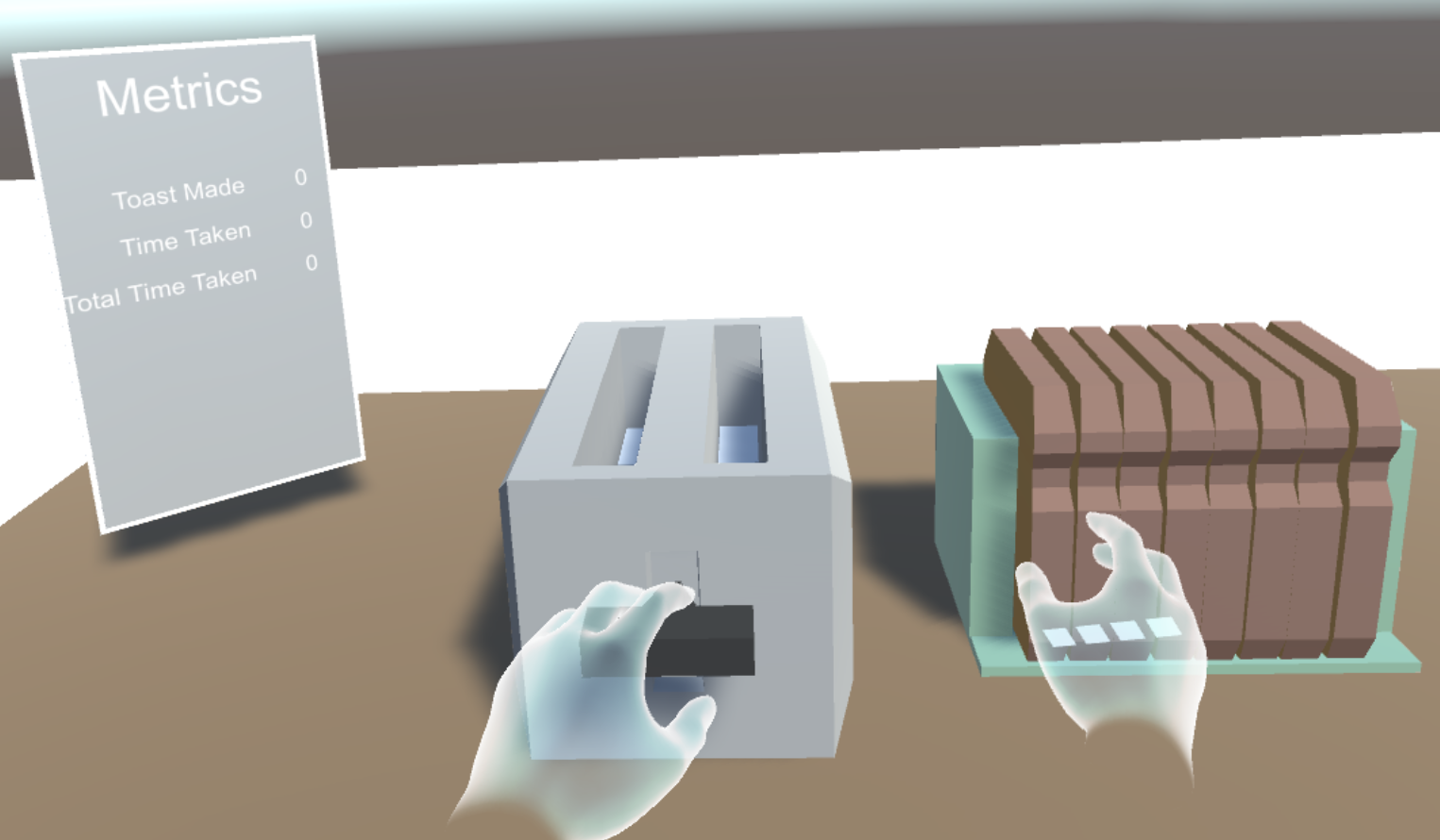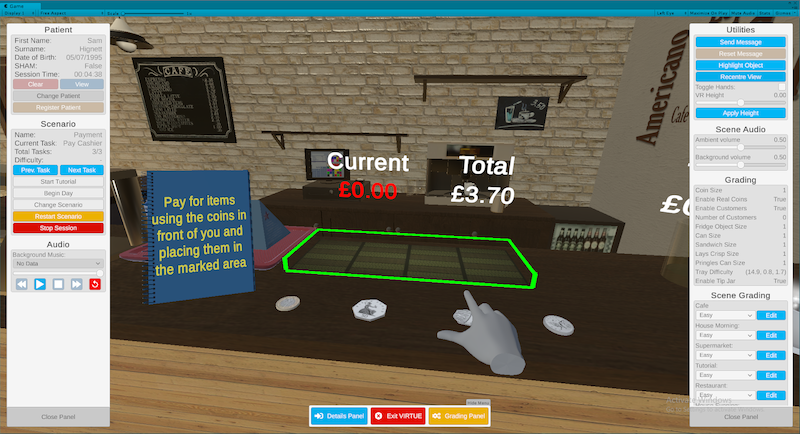Globally, there are 15m strokes annually. Most people survive a first stroke but often have significant morbidity. In addition to motor disability a third have a significant cognitive impairment affecting their functional ability and require substantial socio-economic and financial support, sometimes for the rest of their lives. Strokes cost the UK £9 billion a year, with 50% in direct formal care including lengthy hospital stays and nursing, clinician and therapy provision. The purpose of rehabilitation is to stimulate brain recovery through stimulus of new areas that compensate for the area of damage (neurogenesis and neuroplasticity). Traditionally this involves repetitive tasks to relearn function, hard work with little evidence of quick improvement. It can be tedious for many patients and expensive to provide.
Our innovation has been to create a cognitive rehabilitation programme using low-cost off-the-shelf hardware to help patients relearn everyday tasks. We have developed a VR platform to provide personalised stroke rehabilitation programmes for patients that can be delivered with minimal supervision by a semi-trained health professional. They can set their own workloads with goals and recognise their achievements and progress.

Our aim is to reduce the duration and cost of long-term care by enabling intensive rehabilitation both in-hospital and in the home using affordable technology. The VR stroke app will adapt to each users needs and can be operated with minimal supervision, reducing the support burden on the family and carers. Patients are able to measure how well their cognitive abilities are improving, building confidence in their ability to perform every-day tasks and reducing the psychological trauma often associated with the condition. The overall goal of the project is to improve the quality of life of stroke survivors by returning them to active participation in society faster.

A pilot study wass carried out at the Countess of Chester NHS Trust during 2020/21. Results have been positive and indicate that VR therapy is particularly beneficial to those more severely effected by a stroke. Those patients well enough to return to their own homes are also spending less time in the hospital.
Collaborators: Countess of Chester Stroke Unit, Cadscan Ltd. Funding Body: Innovate UK, Innovation in health and life sciences round 2